Imagine there’s no freedom. It’s easy if you try.
On the American university campus, you don’t have to imagine.
 I was teaching a class on Theological Interpretation of Media this past week.
I was teaching a class on Theological Interpretation of Media this past week.
On Saturday morning (4 March 2017) I began by reading the full description of an attack on freedom of speech.
The Vermont newspaper Addison Independent reported (here)
A “controversial speaker” was shouted down, not allowed to speak
Further attempts to stop the speaker in an on-air broadcast resulted in pulling multiple fire alarms
The speaker and a professor were violently accosted, sending the professor to the hospital
The car used to transport the speaker and professor was beaten, jumped on, and blocked from leaving campus by protesters
 My class couldn’t believe it. We had been studying Orwell’s book 1984 warning the loss of freedom. My students did not have to imagine Orwell’s futuristic scenario, they were hearing it firsthand.
My class couldn’t believe it. We had been studying Orwell’s book 1984 warning the loss of freedom. My students did not have to imagine Orwell’s futuristic scenario, they were hearing it firsthand.
 But I had seen this before. Too many times conservative, libertarian voices have been booed off campus stages, had speaking invitations rescinded, or were kept from giving graduation addresses.
But I had seen this before. Too many times conservative, libertarian voices have been booed off campus stages, had speaking invitations rescinded, or were kept from giving graduation addresses.
Imagine an African-American woman who served as secretary of state who was protested into not coming to campus. One doesn’t have to imagine: this happened to Dr. Condoleezza Rice.
Imagine an African-American man who serves on the editorial board of The Wall Street Journal who had a speaking invitation rescinded (later reinvited). One doesn’t have to imagine: this happened to Jason Riley.
Imagine an Arab-American woman who is a human rights activist whose invitation to present a commencement address was rescinded. One doesn’t have to imagine: this happened to Ayaan Hirsi Ali.
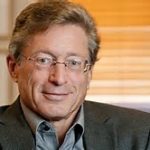 Former Stanford Provost John Etchemendy did not have to use his imagination when he spoke this past month to the Stanford University Board:
Former Stanford Provost John Etchemendy did not have to use his imagination when he spoke this past month to the Stanford University Board:
Over the years, I have watched a growing intolerance at universities in this country . . . a kind of intellectual intolerance, a political one-sidedness, that is the antithesis of what universities should stand for.
It manifests itself in many ways: in the intellectual monocultures that have taken over certain disciplines; in the demands to disinvite speakers and outlaw groups whose views we find offensive; in constant calls for the university itself to take political stands.
We decry certain news outlets as echo chambers, while we fail to notice the echo chamber we’ve built around ourselves.
We will write off those with opposing views as evil or ignorant or stupid, rather than as interlocutors worthy of consideration.
 Freedom to hear other points of view often begins with a faculty. Instead of encouraging students to hear those with whom they may disagree, dis-invitation reigns.
Freedom to hear other points of view often begins with a faculty. Instead of encouraging students to hear those with whom they may disagree, dis-invitation reigns.
 I call upon my fellow academics, Christian or non-Christian, liberal or conservative, Democrat or Republican, gay or straight, Black or White, to adhere to the following ideals in civil, university discourse:
I call upon my fellow academics, Christian or non-Christian, liberal or conservative, Democrat or Republican, gay or straight, Black or White, to adhere to the following ideals in civil, university discourse:
Stop using caustic, inflammatory, violence-inciting rhetoric toward any person
Invite those with whom you disagree into your classrooms, programs, and commencements
Encourage a spirit of openness, generosity, and grace in all verbal communication
Welcome debates with other academics who have opposing views on campus
Alert students to the weakness in your own biases as you point to the strength of opposing perspectives
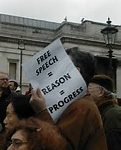 Sadly, a conservative university student told me this week,
Sadly, a conservative university student told me this week,
“I state my opinion to classmates but write my papers saying what my liberal professor wants to hear. I want to graduate.”
Imagination is not necessary.
University freedom of speech is assaulted every day.
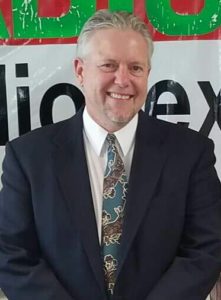 Mark’s students regularly heard the opposing viewpoints from atheists themselves in his Christian high school classrooms. Now Mark encourages conservative university students to read liberal perspectives and liberal students to read conservative perspectives. [Labels such as “liberal” or “conservative” are only helpful in addressing cultural generalities but are generally unhelpful in academic-intellectual discussions. The words are used here only reflecting current, cultural vocabulary.] Dr. Mark Eckel is President of The Comenius Institute.
Mark’s students regularly heard the opposing viewpoints from atheists themselves in his Christian high school classrooms. Now Mark encourages conservative university students to read liberal perspectives and liberal students to read conservative perspectives. [Labels such as “liberal” or “conservative” are only helpful in addressing cultural generalities but are generally unhelpful in academic-intellectual discussions. The words are used here only reflecting current, cultural vocabulary.] Dr. Mark Eckel is President of The Comenius Institute.
Picture credits: Wikipedia, Stanford.edu

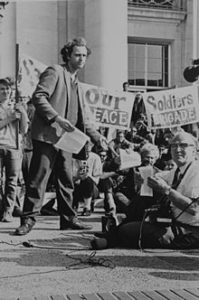
I want to stand up and Cheer!
Wendy–I agree!!
It’s funny how these institutions have fought so hard for freedom of speech and tolerance, yet they have become so narrow-minded and intolerant. It will be interesting to see what emerges from the current state of affairs.
Hi, Mark.
I trust you are doing well.
Your article and examples were interesting, but it took me back to the time when academic freedom was first introduced to the United States by professors who had studied at German universities. (No, I was not alive at the time.) These professors brought back with them this concept of academic freedom as a backdoor method to introduce their rationalistic anti-supernaturalist views into the Northern Baptist Convention seminaries.
The concept spread to secular universities, where it is more appropriate. However, I would not tolerate unchecked academic freedom as a policy in a religious institution, though I agree with your approach to expose students to both sides of issues, just as you did at Lenawee Christian School. However, if I remember correctly, your ultimate goal was to help them develop a biblical worldview, and if you remember, I agreed with your approach.
The implementation of academic freedom has come full circle. In the late 19th and early 20th centuries, conservatives (or should I say , the fundamentalists–conservatives tend to vote with liberals in order to keep the peace) were fighting to rid the seminaries of these liberal professors. History shows that the fundamentalists lost.
Today, the situation is reversed. Conservatives speaking at secular schools run the risk of censorship. If they want a more receptive audience, they should apply to speak at such places as Hillsdale College in Hillsdale, Michigan. It’s their choice.
Thanks for your post. It gave me the opportunity to voice my opinion on something regarding which I have been thinking about for some time.
Please tell your wife I said “Hi,” and thank her again for returning my book.
Cliff R. Loriot, GED, CWD, ThB, MDiv, MEd, Eds, PhD
The following URL substantiates my claim that the term “academic freedom” was first introduced into the United States in the late 19th and 20th centuries (sans a two blips twenty and forty years prior to that):
https://books.google.com/ngrams/graph?content=academic+freedom&year_start=1800&year_end=2000&corpus=17&smoothing=3&share=&direct_url=t1%3B%2Cacademic%20freedom%3B%2Cc0
Thank you. Feel free to delete any reference in my previous post to our prior history together.
Thanks for not censoring my comment, Mark.